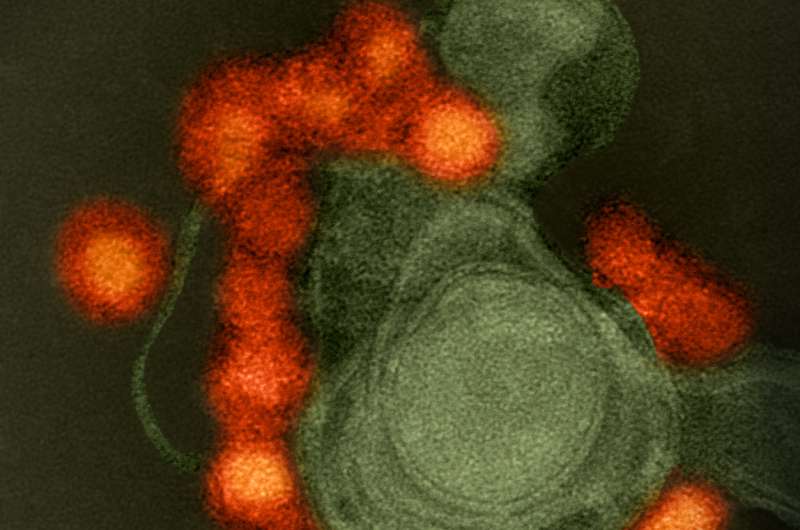Research provides clues to how Zika virus breaches the placental barrier

New research reveals that in pregnant women, Zika virus infection damages certain cells that affect placental formation and function. Furthermore, herpes simplex virus-2 (HSV-2) infection augments placental sensitivity to Zika virus by enhancing the expression of receptors that allow Zika virus to enter cells.
The findings may help explain the mechanism by which Zika virus breaches the placental barrier to access the fetus. They also suggest that fetuses in pregnant women with HSV-2 infection are at a higher risk for microcephaly and other effects caused by Zika virus.
"Investigators in Brazil have suspected that something more than Zika virus is causing the high intensity and severity of cases. Our study suggests that the immune response to an early infection, HSV-2, may be the additional factor that increases the risk for severity of Zika virus-induced disease," said Dr. Gil Mor, senior author of the American Journal of Reproductive Immunology study.
More information: Paulomi Aldo et al. HSV-2 enhances ZIKV infection of the placenta and induces apoptosis in first-trimester trophoblast cells, American Journal of Reproductive Immunology (2016). DOI: 10.1111/aji.12578
















